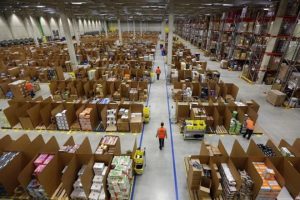Due to trade barriers such as the entry tax, local body tax, Octroi and other hurdles, trucks idle for 30-40 per cent of the day, leading to huge man-hour and fuel losses, says the report.
Since GST will be levied on goods transportation and full credit will be available on interstate transactions, logistic cost is expected to come down by 1.5-2 per cent of sales due to warehouse optimization and the resultant lower inventory cost.
According to a recent World Bank report, corporates can save up to 40 per cent of their logistic costs incurred at check-posts and toll plazas.

GST can lower cost of logistics industry by 20 per cent
According to the report, the higher growth of the logistic industry will be driven by e-commerce, GST rollout, government focus on local
manufacturing, the new national integrated logistic policy, and 100 per cent FDI in warehouses, food storage facilities etc.
But in spite of large potential, the industry remains entangled in complexities such as higher costs, a myriad of complex tax structures.
The logistic sector is primarily divided into four segments — transportation, warehousing, freight forwarding and value-added logistics.
The transportation contributes the lion’s chunk of 60 per cent of the logistic pie, followed by warehousing compromising industrial and agricultural storage at 24.5 per cent. Packaging and other related businesses constitutes the rest of the segment.
Explaining the complex web of taxes that states impose on goods and services, the report notes that currently, each state taxes goods that move across its borders at various rates, leading to multiple taxation.
The present taxation rate peaks at 26.5 per cent (Cenvat of 14 per cent, and VAT of 12.5 per cent) apart from the state level corporate tax of 2 per cent for transferring inter-state goods.
The proposed dual GST model (central GST and state GST) proposes to replace around 29 state and federal taxes and tariffs for a single tax at the point of sale. The current combined Centre and state statutory rates for most goods works out to be 26.5 per cent but GST is expected to bring it down to 18-21 per cent.
The existing interstate taxation system has forced companies to create and maintain warehouses in each state and at present each company has 20-30 warehouses, in addition to this 20-30 carry & forwarding agents in each state making the supply chain longer and inefficient.





Nice Blog, Very helpful to understand that where is the logistics industry going and what is happening in industry. GST will help to grow business and reduce the logistics cost down.